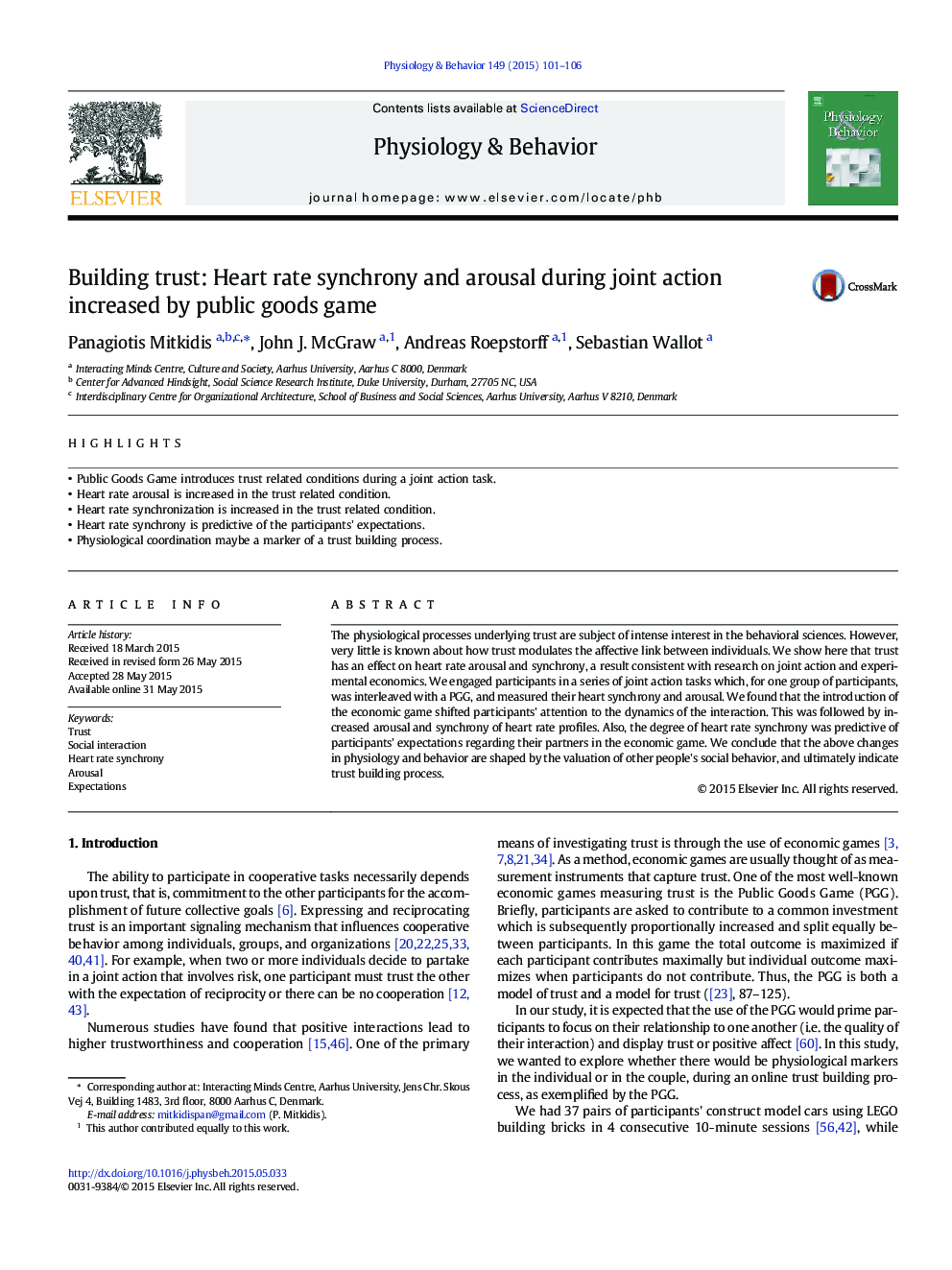| Article ID | Journal | Published Year | Pages | File Type |
|---|---|---|---|---|
| 5923559 | Physiology & Behavior | 2015 | 6 Pages |
â¢Public Goods Game introduces trust related conditions during a joint action task.â¢Heart rate arousal is increased in the trust related condition.â¢Heart rate synchronization is increased in the trust related condition.â¢Heart rate synchrony is predictive of the participants' expectations.â¢Physiological coordination maybe a marker of a trust building process.
The physiological processes underlying trust are subject of intense interest in the behavioral sciences. However, very little is known about how trust modulates the affective link between individuals. We show here that trust has an effect on heart rate arousal and synchrony, a result consistent with research on joint action and experimental economics. We engaged participants in a series of joint action tasks which, for one group of participants, was interleaved with a PGG, and measured their heart synchrony and arousal. We found that the introduction of the economic game shifted participants' attention to the dynamics of the interaction. This was followed by increased arousal and synchrony of heart rate profiles. Also, the degree of heart rate synchrony was predictive of participants' expectations regarding their partners in the economic game. We conclude that the above changes in physiology and behavior are shaped by the valuation of other people's social behavior, and ultimately indicate trust building process.
